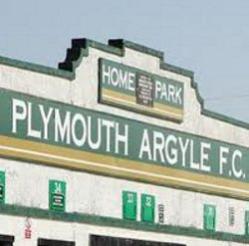The Charity Commission has found that trustees of the Plymouth Argyle Supporters Training and Development Trust did not meet their legal obligations when they decided to loan Plymouth Argyle FC £330,000.
The loan was made in January 2011 to assist the football club in paying off a tax bill in order to ward off the threat of administration or possible liquidation. The amount represented the vast majority of the Trust’s assets, although at the time the loan was offset against the value of Plymouth Argyle’s stadium Home Park, which was then valued at £6m.
The Charity Commission has released its report into the loan today.
The agreement between the Trust and the football club was that the sum be repaid over 18 months on a quarterly basis at an interest rate of 1.5 per cent above Bank of England base rate of 2 per cent, but Plymouth Argyle FC then went into administration on 3 March 2011 and subsequently missed repayments.
The Commission's report found that all ten of the trustees had links or interests in Plymouth Argyle FC which they did not declare as a conflict of interest while voting on whether to loan the money. All ten are season tickets holders and six of them have shares in the football club.
Paul Stapleton arranged the loan and at the time was chairman of the football club as well as a trustee of the charity. The Commission found the loan was also in breach of the charity’s governing document which states that the charity's advisory committee are to be consulted before the charity committed any funds over £1,000.
The Commission concluded that the trustees had not met their legal duties and responsibilities as trustees including the need to safeguard the charity’s funds and to apply them for the proper purposes of the charity. The football club is now under new ownership and has agreed a repayment plan over five years, which the Charity Commission will monitor and a follow-up case will be conducted in six to nine months’ time.
The Charity Commission highlighted the wider implications for all charities intrinsically linked to other organisations such as sporting clubs. The report states:
“Charities are independent entities that exist to assist their beneficiaries. Where charities may be linked to professional sports clubs, the trustees must remember that the interests of the charity must be placed at the forefront of their decision-making.
"Trustees must actively manage any conflicts of interest. It is vital that trustees avoid becoming involved in situations in which their personal interests may be seen to conflict with their duties as trustees. The trustees should put in place policies and procedures to identify and manage such conflict.”









